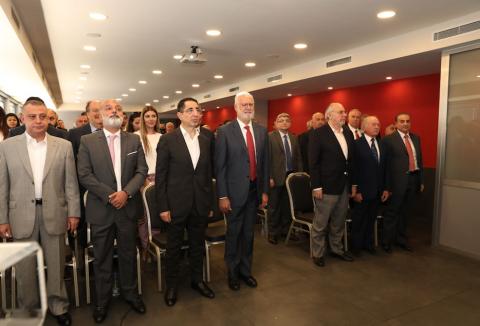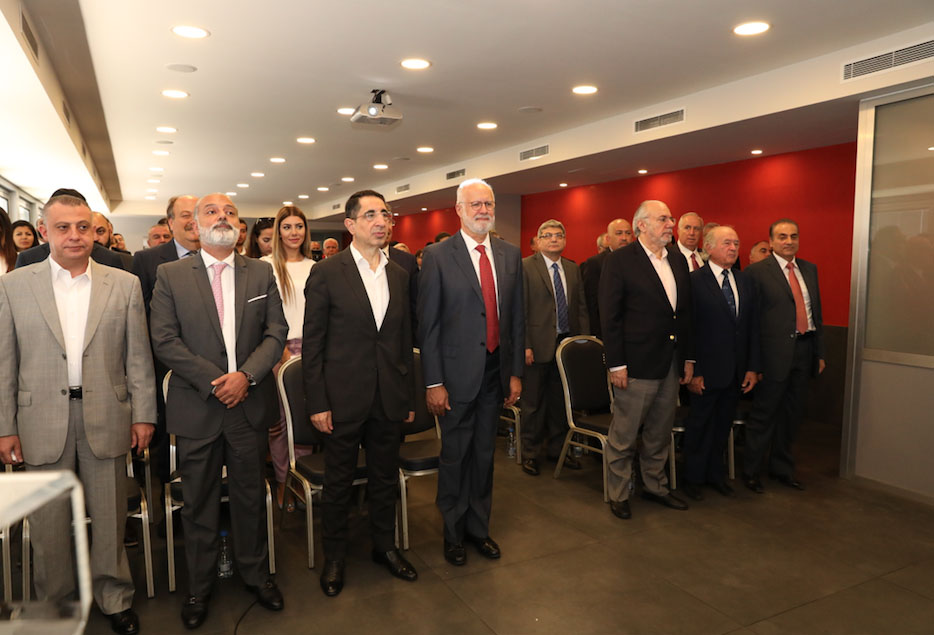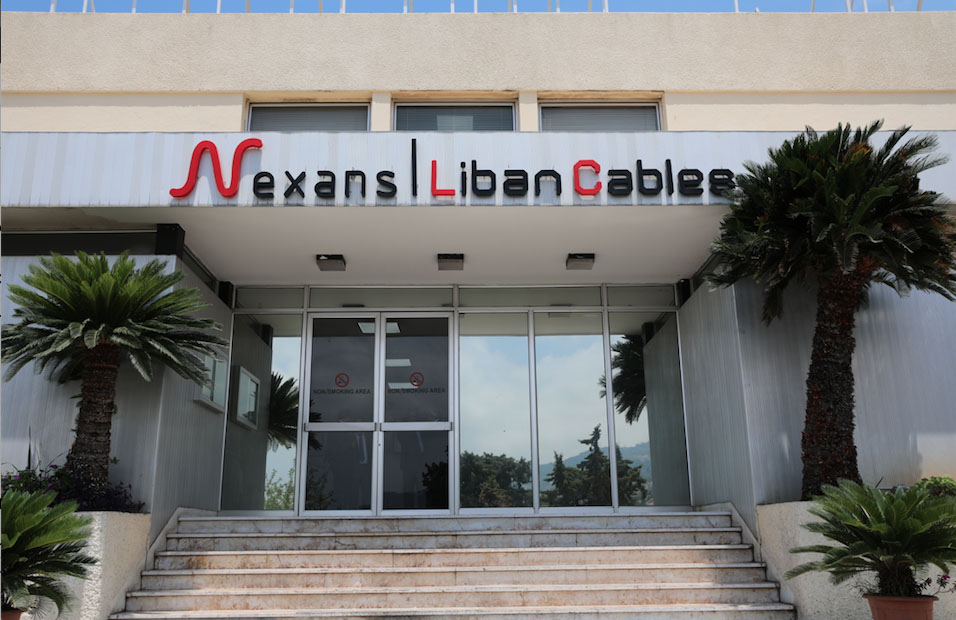
- Liban Cables inaugurated a new 601 kW-peak solar power system
- By replacing one of its 7 diesel generators with photovoltaic panels, Liban Cables will reduce its greenhouse gas emissions by 751 tons per year.
- The Liban Cables project is the first one to be completed within the framework of the Small Decentralized Renewable Energy Power Generation (DREG) Project, implemented by the United Nations Development Programme and the Lebanese Ministry of Energy and Water.
Under the auspices of the Minister of Energy and Water, H.E Mr. Cesar Abi Khalil and the Minister of Industry, H.E. Dr. Hussein Al Hajj Hassan, in the presence of the Assistant Resident Representative of the United Nations Development Programme (UNDP), Mr. Edgard Chehab, the President of the Association of Lebanese Industrialists and the Chairman, Dr. Fadi Gemayel represented by Mr. Georges Nasrawi, and the Chairman and President of Liban Cables, Mr. Bassem El-Hibri, the opening event of a large solar power plant serving Liban Cables’ Industry in Nahr Ibrahim took place. The 601 kilowatt-peak solar power plant was co-financed by the Global Environment Facility (GEF) and Liban Cables through the Central Bank’s NEEREA loan program and implemented by the UNDP in partnership with the Ministry of Energy and Water.
The project consists of 1,908 solar (photovoltaic) panels generating approximately 938,000 kilowatt-hours per year, contributing to significant cost savings at Liban Cables as well as a subsequent reduction of greenhouse gas emissions of 751 tons per year. This green energy will cover over 8% of the electricity needed by the plant to produce a wide range of building, industry and infrastructure cables.
The Liban Cables’ plant is one of the biggest green energy projects in the country and the first one to be completed within the framework of the Small Decentralized Renewable Energy Power Generation (DREG) Project. The DREG project will cover a portion of the solar system’s cost through a grant by the GEF while the remaining cost will be financed through the National Energy Efficiency and Renewable Energy Action program (NEEREA) set up by Banque du Liban. NEEREA is a green financing mechanism supporting energy efficiency and renewable energy projects for industrial, residential, commercial and non-profit use. Initiated by UNDP, the Ministry of Energy and Water, and Banque du Liban, NEEREA reflects the desire of the government to modernize the electricity supply and promote green energy projects in Lebanon.
The event kicked off with the official speeches from the Chairman of Liban Cables, the UNDP’s Assistant Resident Representative, the representative of the Minister of Energy and Water and the Minister of Industry, and followed by a walk-through in Liban Cables, observing the solar installation from the roof and receiving a technical briefing on the system and its performance to date.
Categories
- Log in to post comments

